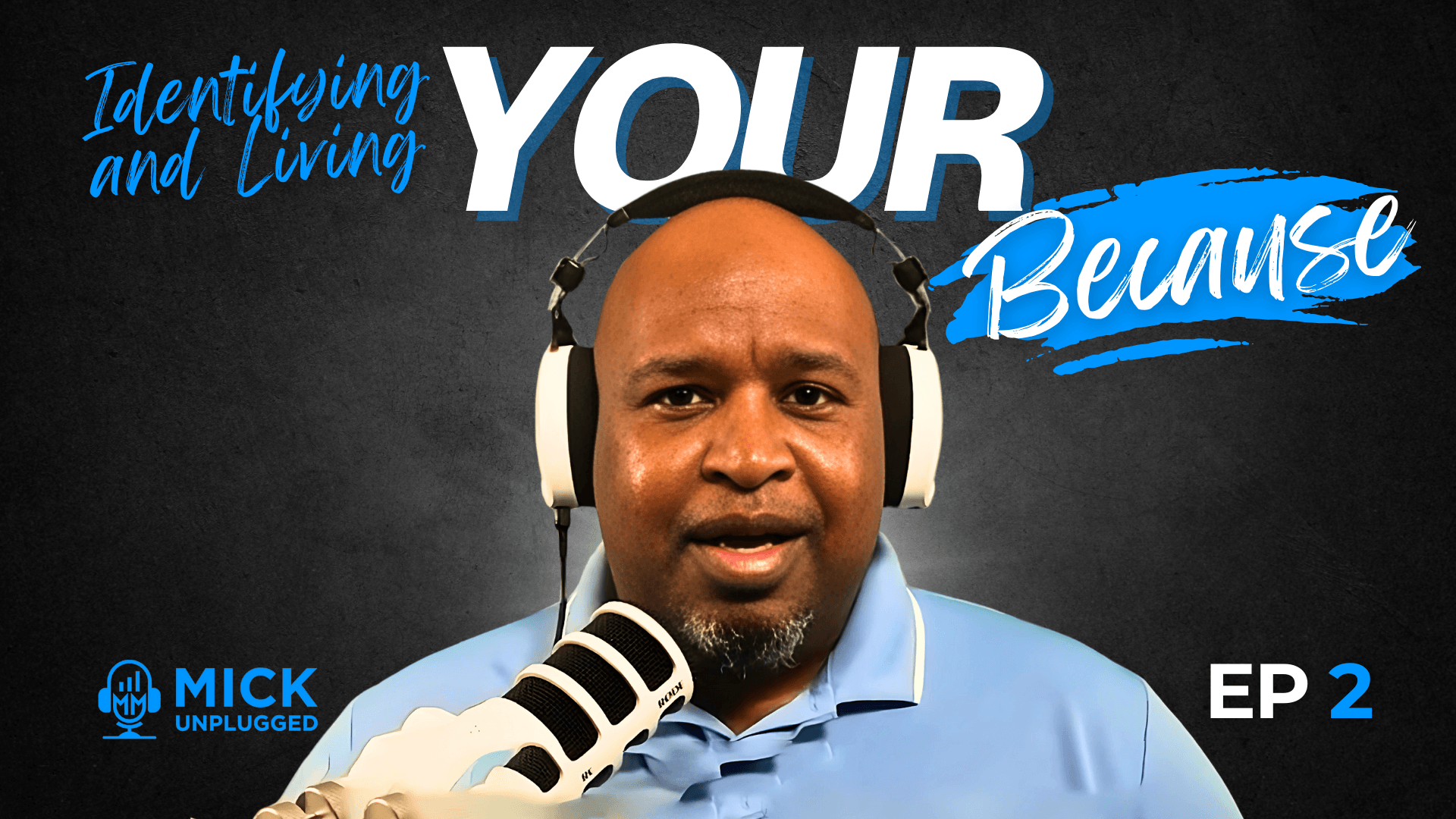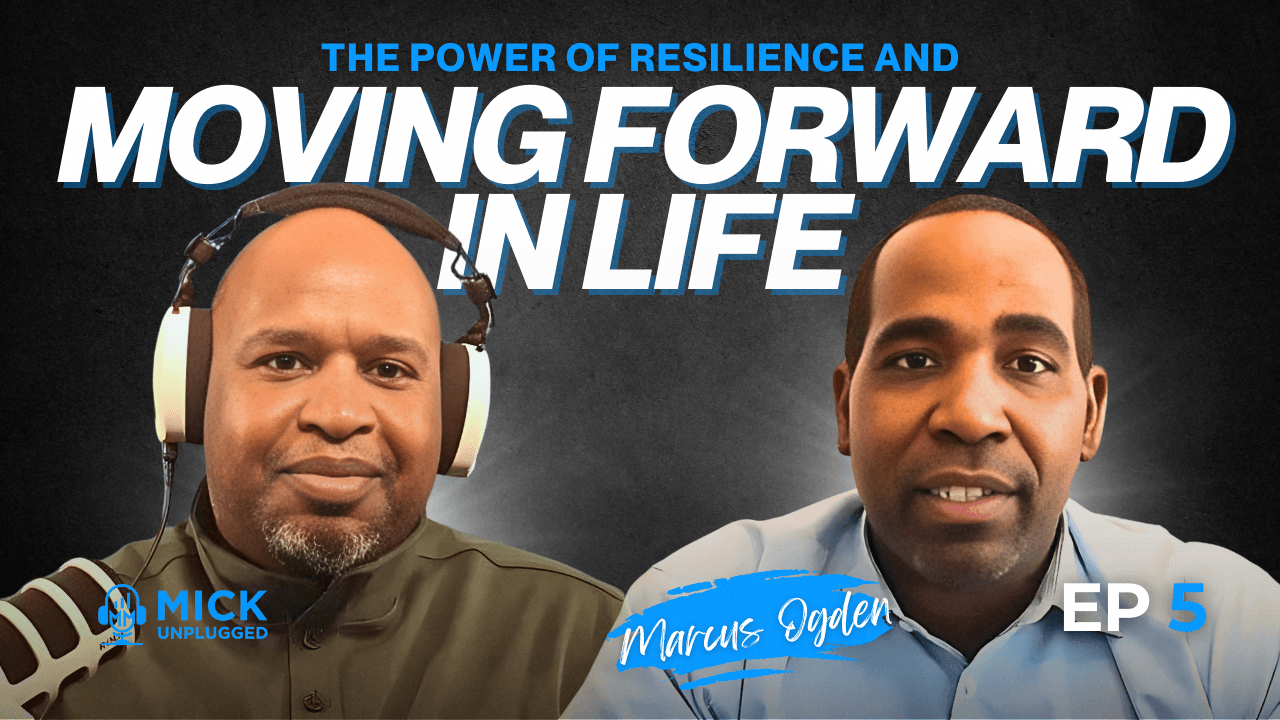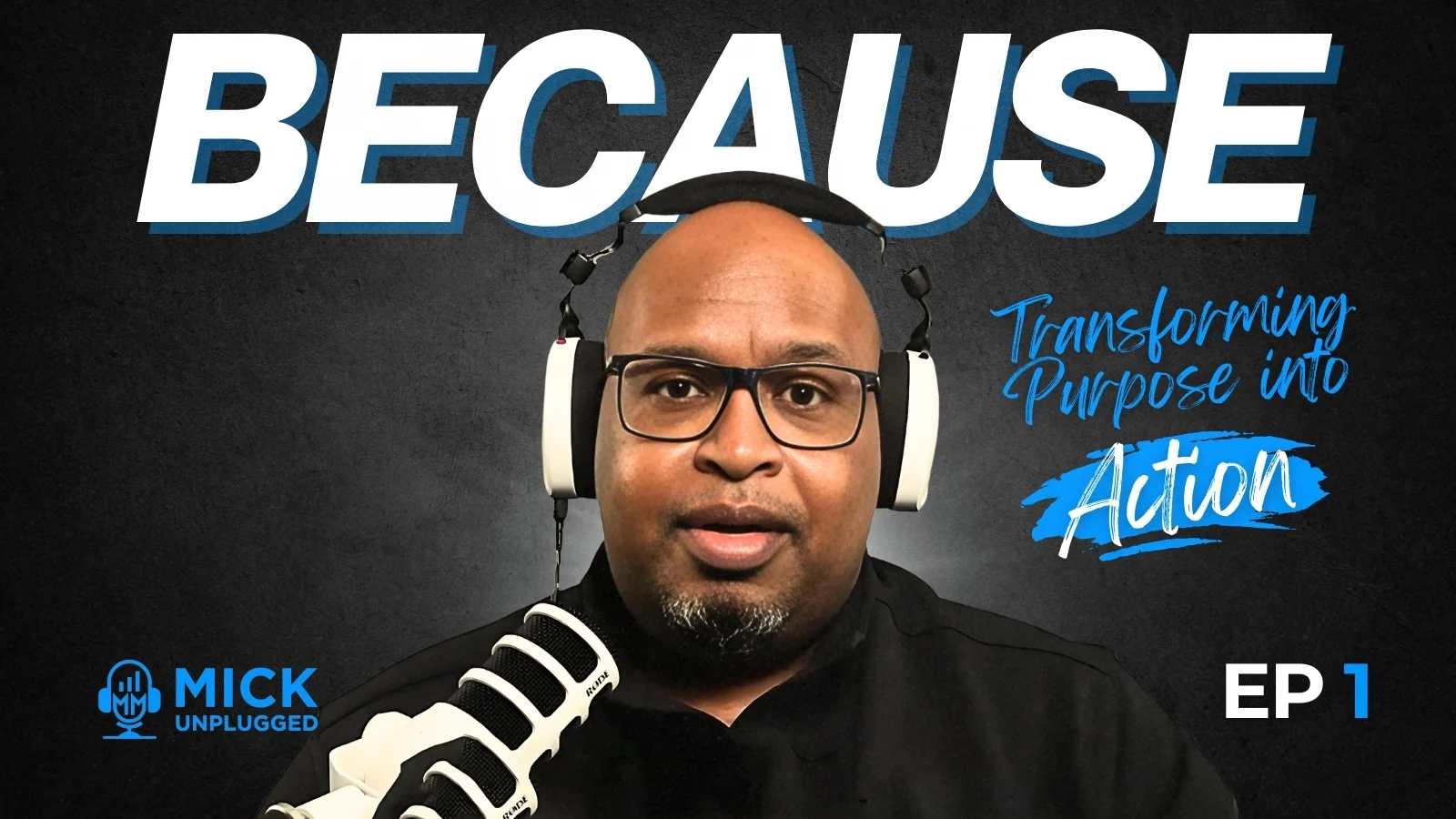[00:00:00] Podcast Intro: Are you ready to change your habits, sculpt your destiny, and light up your path to greatness? Welcome to the epicenter of transformation. This is Mic Unplugged. We’ll help you identify your because, so you can create a routine that’s not just productive, but powerful. You’ll embrace the art of evolution, adapt strategies to stay ahead of the game, and take a step toward the extraordinary.
[00:00:29] So let’s unleash your potential.
[00:00:31] Mick Hunt: Now, here’s Mic. Ladies and gentlemen, welcome to another exciting episode of Mic On Plug, where we explore the journeys of visionaries and change makers. Today, I’m extremely excited to introduce an extraordinary entrepreneur, activist, and futurist. With her innovative approach to storytelling and deep commitment to empowering women globally, she’s made a profound impact through her company, Two Parent Productions, And her initiative, bad ass business women.
[00:01:00] Please join me in welcoming the dynamic and inspiring Jessica. Cause Zork, Jessica, welcome to Nick unplugged.
[00:01:08] Jessica Kizorek: Nick. I’ve been looking forward to this.
[00:01:10] Mick Hunt: Me too, miss bad ass.
[00:01:13] Jessica Kizorek: Yes. That’s my favorite term. When somebody calls me, that’s like, it’s like the ultimate compliment for me.
[00:01:19] Mick Hunt: Love it. So let’s just go into it.
[00:01:21] So let’s talk about that initiative. Bad ass business women. Like what was the inspiration behind it and what impact have you been making globally with them?
[00:01:31] Jessica Kizorek: Yeah, so it was in 2010 and I had written a book in 2007 about marketing with video on the internet. And at the time it was. The first book I had ever seen or read about that’s about marketing with video on the internet.
[00:01:47] It was before YouTube was a real household name. And so I was being invited to speak at a lot of groups like marketing groups, professional groups, South Florida Interactive Marketing Association, American Marketing Association, Network of Business, American Women Business Owners. I was giving all these speeches and everybody wanted me to join their group, but I never felt at home.
[00:02:10] In any of the places. And I really wanted to hang out with women like me who really had goals in life and really wanted to push their own like productivity and capacity to achieve and stuff like that. So I just started my own group and it’s, it’s funny because it either attracts someone it’s either magnetic or it’s repulsive.
[00:02:30] People are like, Oh, I don’t want anything to do with that. So, you know, I like that though. I want to know who are my people.
[00:02:37] Mick Hunt: I love it. So, you know, I’ll make unplugged. We talk about folks because right? Like, I think that understanding your why and I’m using air quotes, your why is very superficial. It’s your because that drives you.
[00:02:51] It’s your because that gives you your reason and purpose. So what is Jessica’s because?
[00:02:56] Jessica Kizorek: You know, I, I listened to one of your podcasts about the religious gentleman. I forget his name, but he was talking about his, the actor and he was talking about his journey and his because, and I was thinking to myself, you know, I’m not a religious person.
[00:03:08] I’m not a Christian, but my, because my religion is really like. Social service. And what I’ve discovered as a 44 year old person is that I have a very specific area of expertise that’s extremely rare, which is I can make short documentary films about nonprofits. that help them raise more money up to millions of dollars extra because we’re able to tell their story and send their donor right to the front line of what, what the, where those donations are actually going.
[00:03:43] So I realized that I could both, you know, charge money for this, but I could also donate it for free. Free as like a pro bono thing. And my investment, if I donated like a 20, 000 project per se, then the nonprofit would be able to leverage this for so many other things, writing grants, um, getting new board members, putting it on their homepage, putting it on social media, using it as part of fundraising campaigns in emails.
[00:04:12] And so my real because is using technology to make the world a better place. Hmm.
[00:04:21] Mick Hunt: I love it. I love it. That’s amazing. So speaking of that company, right, to parrot productions, what’s been one of the most impactful projects that you’ve worked on and what was the difference that that made?
[00:04:34] Jessica Kizorek: Wow. I have just, you know, uh, one of my clients is the boys and girls club of Martin County.
[00:04:42] They one year. Raised the, the first year I did the videos for them, they raised an extra 750, 000 year over last and multiple people hypothesize that it was really because of the video. So knowing that one of my nonprofits had 750, 000 potentially because of something I helped them do and knowing how many young people in those communities were impacted by their capacity to get free meals, free tutoring.
[00:05:13] Free transportation, free mentoring, all those kinds of things. I feel like it’s this, I never even really ultimately know the ripple effect of my work. I make a video for a nonprofit in Florida and it helped build traction so that Miami Dade County was able to ban fracking permanently from the entire county.
[00:05:34] And my video was seen by all the legislative bodies through all the campaigns as the primary talk piece. So we’re able to, you know, accomplish a number of different things through these videos. And I always love hearing the stories of what nonprofits were able to do when they had a video like this to tell their story.
[00:05:54] Mick Hunt: That’s awesome. So, you know, following you for a while now and doing a lot of reading about you and seeing the thing, the amazing things that you’ve done. I always say this about extremely successful people. And I’m going to say this about Miss Badass over here on the other line. You don’t get there without challenges and then triumphs of those challenges.
[00:06:14] What are some of the biggest challenges that you face in your career? And what’d you do to overcome them?
[00:06:20] Jessica Kizorek: I’d have to say that I’ve sold a lot of things in my, in my career. I’ve sold like a 75 monthly membership for an information project. I’ve sold event tickets for conferences and speeches. I’ve sold workshops.
[00:06:39] I’ve sold online learning systems. I’ve sold video productions. I’ve sold branding, I’ve sold all these different kinds of things. And you never, you never really know what’s going to generate the money. So I, I find that I have to dedicate a lot of time to marketing myself and just sort of putting my name out there and doing these things that may or may not bear fruit, but you know, like I always tell people that one of my biggest challenges has always been networking and sales.
[00:07:08] And so for me to put myself out there and to go to events, to meet people, to be able to share the power of what I do, to be able to, to get clients on board who understand the value that I bring to the table. It’s a series of constant disappointments. All the people that say no to me, you know, but unless I have 10 people that say no to me, I won’t have the one or two people that say yes.
[00:07:34] I think that in terms of an ongoing challenge, it’s dealing with the daily, weekly, monthly rejections that you need to deal with to continue to be on target to accomplishing the things you want to.
[00:07:46] Mick Hunt: I love it. And you know, I tell people almost that same thing every time, right? Life is never easy.
[00:07:52] Sometimes life be life. And it’s. As my mentor, Les Brown will say, right, life be lifing sometimes. And you have to be very careful when people paint the picture that success is easy. And if you do these one or two things, like success is going to happen and you’re never going to have adversity. Life is about adversity.
[00:08:09] It’s about how you respond and, and. To me, it’s the power to keep going and to persevere. And that’s one of the things that I’m so admired about you is just that perseverance to, to keep going. So kudos to you, Jessica.
[00:08:21] Jessica Kizorek: Thanks. Yeah. I created my first documentary film when I was 18 years old and I’m 44. So you do the math.
[00:08:29] I’ve been doing documentary films for. A long time. And I think, you know, part of what you’re talking about with life, be lifing, and it’s about adversity. One of my goals is to be hired as full time faculty at Florida international university, which is a huge public institution down here in Miami. And I’ve applied for jobs there.
[00:08:50] I have. Not gotten a job there, but I, every chance I get, I’m telling people at FIU, Hey, listen, I’m here because I want to get hired. I’ve been doing research with this institution since 2015. It’s now nine years. I’ve been involved with the school. I want to be officially on board. And so I think part of also perseverance is.
[00:09:14] Saying what you want, because you have to repeat it over and over again so that your whole community can get behind you so that you can get the, the alert that the positions open so that you can get the chair to recommend you so that you can get all the letters of recommendations that you need so you can line up the stars like you want them to.
[00:09:34] But the chair of the department, when I was talking to her, she said, you know, thanks so much, Jessica, for being willing to teach adjunct this fall. And I know you’re here for full time position. And we just got to get you. foot in the door and I’m here to help you. And man, when you can have like a bunch of people around you, like all wanting to help you get to where you want to go, that’s mastery.
[00:09:54] Mick Hunt: Absolutely. You know, you’ve traveled to over 60 countries covering humanitarian issues.
[00:10:00] Jessica Kizorek: That is true.
[00:10:01] Mick Hunt: How have these experiences like shaped your perspective on global activism? And, and what are some things that you want the listeners to know about? What’s going on, not just in our country, but some of these other countries that you’re going to invoke change in.
[00:10:15] Jessica Kizorek: First thing that I want people to know about is my nonprofit. So I own two pair of productions for 20 years. My nonprofit is called eyes on your mission. And what are one of our programs is we donate video production services to nonprofits and therefore these nonprofits are able to take this donation, uh, which is valued at 20, 000.
[00:10:40] And they’re able to take this short documentary film and raise funds, raise awareness, get the word out there, help them get more money, all those kinds of things. And, and so that grant is open. If you’re listening to this, it’s. It’s in 2024. It’s open from May 16th to July 18th. So if you are a nonprofit or you know, a nonprofit, I’d really suggest you go to just Google eyes on your mission video grant, and it’ll pop up on Google.
[00:11:09] But I really recommend that you check that out. There are so many cool things that I could tell you about in so many projects and so many destinations and so many characters and so many causes and issues and complex ecosystems. But I think that the overarching message, my overarching message is to really inspire all these nonprofits to try and get their story told, whether it’s through us or whether it’s through somebody else.
[00:11:35] I’m even going so far as to people who don’t win our grant. We pick about three to five nonprofits every year and we’ll be picking those in the fall and July, August. But we really recommend that you go and check that out. And, and, and we’re, we’re even providing like, uh, coaching for proposals on ways to get projects co funded and stuff like that.
[00:11:57] So, you know, that’s my big message is, is no matter where you are, video camera can. Tell your story in so many ways that text and
[00:12:08] Mick Hunt: photos can’t wholeheartedly from a business perspective, I always talk to business leaders and their staff about the power of video. I could be having a very bad day. I could be in a bad mood and Jessica sends me an email.
[00:12:22] This text, I’m going to take it in my mood, right? Jessica could be the happiest, most go lucky person on the other end, but because I’m in a bad mood, I’m going to take it that way. But if Jessica sends me a video now, Jessica is bringing me into her world, into her heart, into her place of happiness. And video is that powerful.
[00:12:41] I mean, so much so that I tell people again, all the time, I would much rather you send a video via text or email. Then to send the worded script, because you don’t know how someone’s day is going or what just happened and you don’t want to leave things up for chance. What do you think about that, Jessica?
[00:12:57] Jessica Kizorek: Well, I could not agree more video has always been my preferred medium. For a long time. I just think it’s so rich and there’s so much you could do with it. It’s it’s really about not only being able to send a video, but like you just said, to be able to impact someone’s mood. And that is if you are a video person and you are a masterful video person, like I consider myself a masterful video person.
[00:13:27] You can take someone on an emotional rollercoaster ride and you do that with. Script in words, you do that with music, you do that with visuals, you do that with animations and a combination of all those elements, you know, you can start someone out as shocked. Then you, they could be dismayed, then they could be upset, then they can be relieved.
[00:13:52] Then they can be so happy and they can be generous. You know, if you know how to do video and be able to tell the story, even just with the music alone, it makes such a big difference and you can take somebody on an emotional rollercoaster ride. And if that’s what it takes to open up people’s wallets and get them to donate to charity, then yeah, that’s what my life’s all about.
[00:14:14] You know, is, is the power of video to take people on an emotional rollercoaster that makes them want to be generous to the nonprofits in their life.
[00:14:23] Mick Hunt: Love it. Jessica, you are one of the busiest people that I know. And I mean that sincerely, you’re one of the busiest people that I know. How do you balance your diverse roles from being an entrepreneur, an activist, an artist, which we haven’t really gone into yet, and an athlete, which we haven’t gone into yet?
[00:14:39] How do you balance that? Balance all of that, because I know that there are a lot of listeners that are also, how are they balancing the diverse roles that they have, whether it’s being a business owner or a business leader, and then having to come home and be a parent or a big brother or big sister. How do you keep yourself grounded in all the busyness that you have?
[00:14:57] Jessica Kizorek: I have really good time management skills. I think that’s at the heart of it. And you also have to know how to take care of yourself because I used to just push it and push it and push it and stay up late and sleep for four hours and then get up and I would get sick. That was what I noticed many years ago, like a decade ago.
[00:15:16] And I really realized that I had to not only schedule my time mentally where I had to be creative, but also I had to schedule my time off. And so as a result, like even in my calendar on Sundays, I have the whole day blocked off for to do nothing other than what I feel like at that moment. And so the combination of really scheduling things, and I, I have a list.
[00:15:38] Like I’m sitting in front of a list today’s checklist. Wednesday has 1, 2, 3, 4, 5, 6, 7, 8, 9, 10, 11, 12, 13. Items on this checklist for today. And so I also manage a really, um, active to do list. I probably update my to do list. On my computer three times a week and then I print it out and I write notes on the side and then I reintegrated and prioritize.
[00:16:07] So it’s like, um, it’s a function of time, good time management skills, good prioritization skills, and good sort of like organizational skills, being able to organize a to-do list and things like that.
[00:16:18] Mick Hunt: Love it. So I know when I introduced you, I said, you’re a futurist and I know there’s probably 600 people listening right now.
[00:16:25] They’re like, what’s a futurist. Right. But as a futurist, and I’m going to let you tell that story now, what trends do you foresee in the fields of like digital media and entrepreneurship as we move into 2024, 25, 26, 27.
[00:16:40] Jessica Kizorek: Well, my big passion project these days has to do with artificial intelligence. I am, as you noted, I’m a pretty busy person because I also am two years into my doctoral program at Florida International University and I’m going to be graduating next year with a degree in, uh, it’s a doctorate of business administration.
[00:17:02] Yeah. So it’d be Dr. Zorich and I’m really excited about that, but I’m writing my dissertation about college students, anxiety around employing artificial intelligence in the classroom for schoolwork. So it’s sort of like college students meets artificial intelligence meets mental health, and I got a degree in artificial intelligence from Kellogg Northwestern University.
[00:17:29] The Kellogg school business. And so about five years ago for the last five years, I’ve been really heavily studying artificial intelligence. And especially I’ve been looking at lately, the, you know, the image generation and the video generation. And we just did a project for one of our grantees called the EOD warrior foundation.
[00:17:48] It’s called EOD stands for explosive ordinance disposal. It’s a military thing. So it’s basically like we made a military, mini military movies. It was very fun. We did use AI to generate images of bombs exploding and people handling bombs and images that you wouldn’t be able to capture in the field because it’s just too dangerous to have a photographer leaning over that.
[00:18:12] So we were able to do some really cool stuff with AI for the production. Also, you know, you. To mention entrepreneurship. I also have a partnership with the network for teaching entrepreneurship nifty, and I went into one of their classrooms and taught their students how to use AI to generate business commercials for their ideas, for their entrepreneurship ideas.
[00:18:33] So yeah, I love going into between doing the production myself, between going into classes and teaching students and then my own schoolwork. I’ve been doing a lot of like, I did this lava flow, very dramatic image presentation one time. So artificial intelligence is where my head’s at.
[00:18:53] Mick Hunt: So speaking of AI, it’s not even a buzzword.
[00:18:56] Like AI is here, right? What are some pitfalls that you could give people as far as advice of what not to be doing with AI, or where there’s some things to stay away from?
[00:19:05] Jessica Kizorek: I think I would put it in like a positive context of what’s the one thing to do when you’re looking at it. And I think it’s to give it as much input as you can and as much context as you can.
[00:19:18] Like when I’m talking to AI, I’m like, hi, you know, Dolly, I’m Jessica and I’m a doctoral student at Florida international university. And I’m working on an assignment to do such and such and such. And I would like to do horizontal and it should be all the way to the edges. And I like this and I like that.
[00:19:38] I guide the AI as much as possible so that the images it gives me or the text or the video is as unique as possible, right? So it’s not just coughing up something unimpressive. I think when AI, Becomes impressive is when the human being really dumps as much information. Even if it’s just a brain dump, it doesn’t have to be complete sentences.
[00:20:05] Doesn’t even have to make sense. It can just be a series of, uh, words. And that’s when you get the most interesting stuff out of AI. That’s like, wow, this is cool. This is unique.
[00:20:15] Mick Hunt: Totally agree. And I tell people this, my piece of advice is don’t be lazy. And essentially that’s what you’re saying, right? Like be descriptive.
[00:20:24] Yeah. Make it your own. And I always say, make it unique. Like you don’t want to create something, whether it’s a visual and article or whatever that anyone could do, because then you’re no longer unique. AI kind of took over. You should be working in conjunction and almost, I like to use my AI prompts as like employees, right?
[00:20:43] This is what I need you to do. This is how I like it. This is kind of my ended expectation or my end result.
[00:20:49] Jessica Kizorek: Yeah.
[00:20:49] Mick Hunt: So love it. All right, Jessica, I’m going to get you out here on two things. Number one. Miss badass. And I’m trying to make sure I call you a badass at least 20 times. I want you yelling at me badass over there.
[00:20:59] What advice would you give to young women who aspire to make a significant impact in their communities and beyond? So future badasses out there.
[00:21:08] Jessica Kizorek: I would say find your people and find your community, you know, like whether, whether it’s a networking thing, whether it’s a group thing, I think the more mentorship you can have, the more referrals you can get, the more people that want to help you, just like we talked about earlier about being, being vocal about you want, I have, I have this thing on my to do list.
[00:21:32] It’s a quote from one of my mentors and it says, what are you trying to make happen? You have to see it, feel it and say it. And so I think that my to do list is just like an expression of what I’m trying to make happen. And you have to see it in your own mind. You have to be able to feel it in your own body and then say it to the people around you so that they can help you get to where you want to go.
[00:22:02] Mick Hunt: Amazing. And then lastly, Jessica, where can people follow you? Where can they find you? What’s something you want people to do to support you?
[00:22:11] Jessica Kizorek: Please send any nonprofits, you know, to our video grant. We have pro bono video grant services where we donate the whole project. We have co funded projects and that’s, you can find that on eyes on your mission.
[00:22:28] org or you can just type in eyes on your mission nonprofit in Google. And you know, it’ll come up that’s open from May 16th of 2024 to July 18th of 2024.
[00:22:40] Mick Hunt: Amazing. And I’ll make sure that that’s all in the show notes so that everyone can go to eyes on your mission. org. I’m going to one up at Jessica. I’m also going to contribute there too.
[00:22:51] So I’m going to help support the cause.
[00:22:53] Jessica Kizorek: Oh, yay. Good. Thank you.
[00:22:55] Mick Hunt: Miss badass, Captain Sulu. It’s amazing to have you here. Love the fact that you took a moment out of your busy schedule. I I’m very thankful for you and I know the listeners are as well. So thank you for being a part of the show today.
[00:23:08] Jessica Kizorek: Well, thank you for being an inspirational force in the universe.
[00:23:12] Cause you’re got some great interviews and I enjoyed preparing for this.
[00:23:16] Mick Hunt: There we go. And for all the listeners, remember. Your because is your superpower. Thanks
[00:23:22] Podcast Outro: for listening to Mick Unplugged. We hope this episode helps you take the next step toward the extraordinary and launches a revolution in your life.
[00:23:31] Don’t forget to rate and review the podcast and be sure to check us out on YouTube at Mick Unplugged. Remember, stay empowered, stay inspired, and stay unplugged.






